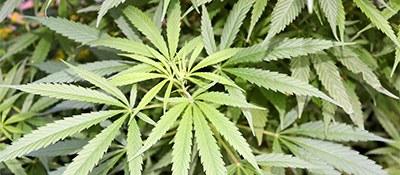Cannabis on board
Cannabis limits on German maritime waterways
Since April 2024, possession of up to 25 grams of cannabis for personal use is permitted according to the German Cannabis Act. But what is actually allowed at sea?
If you are navigating German maritime waterways, you have to abide to a cannabis limit of 1.0 ng/ml THC (Tetrahydrocannabinol) in the blood serum. That is the same value as had been legally applicable for road traffic, which the "Limitation Commission" had recommended until recently. However as of late, a slightly higher limit of 3.5 ng/ml THC has been introduced for road traffic. The Federal Ministry of Transport intends to raise the limit for maritime shipping as well.
Physical effects of regular cannabis consumption
Even if a slightly higher limit might apply for maritime shipping in the future, cannabis consumption in combination with steering a ship is not a good idea. The THC concentration in the blood strongly depends on individual factors such as: How often and how much cannabis gets consumed? How high is the general performance and how does the body react to cannabis consumption? How used to cannabis is the person already?
According to a verdict of the Federal Constitutional Court, the cannabis consumer, as the cause of the risk, bears the "residual insecurity" of the individually occurring THC effects. The protection of the general public exceeds the individual right for intoxication, states the highest German court. Moreover: Even the legal value of 3.5 ng/ml THC in the blood serum is quickly reached, because it is comparable to a blood alcohol concentration of 0.2 per mill driving limit. After regular consumption of large amounts of cannabis, the THC can be traced for days and even weeks.

Legal consequences: Fine, revocation of competency and medical certificates
Oftentimes, cannabis consumption leads to being limited in one's work on board or being unable to safely command and navigate the ship. This may lead to a significant monetary fine – not only for the ship's master but also for other crew members. According to section 3 paragraph 3 of the German "Seeschifffahrtsstraßenordnung" (maritime waterway traffic regulations, SeeSchStrO), someone acts contrary to the regulations if they command a craft even though "a safe command of the craft or the safe performance of tasks that are part of the bridge, deck or engine service is impeded due to indulgence of alcoholic drinks or other intoxicating substances." This means: Even without exceeding the cannabis limit, a fine may be imposed. These "intoxicating substances" are listed in Annex IV SeeSchStrO and include cannabis. Annex IV SeeSchStrO also refers to "the recommendations of the limitations commission at the Federal Ministry for Digital and Transport regarding road traffic, as amended". The limitation commission last recommended a cannabis limit of 1.0 ng/ml THC in the blood serum.
If one "performed their service under the influence of intoxicating substances" und got caught doing so, they could lose their certificate of competency. This is stipulated in section 7 paragraph 3 of the Seafarers' Competencies and Proficiencies Regulations.
According to the Maritime Medicine Regulations, regular cannabis consumption will also result in an unfitness for sea-service. And for good reason, because to smoke cannabis repeatedly leads directly to lower performance in awareness, attention and one's capacity to react. In addition, significant side effects may occur – including sedation, drowsiness, diarrhoea, nausea, vomiting or fever. There is a difference whether one consumes cannabis in a private setting (if legally or illegally is not relevant) or in a professional capacity on board a sea-going vessel, where an emergency or rescue situation that requires a minimum degree of capability may occur at any time. That is exactly why one should not even smoke cannabis during times of rest on board.
Recommendation: No cannabis on board
The BG Verkehr recommends to their member companies to fully ban bringing any cannabis products to work as well as the consumption during work hours or breaks. The BG Verkehr includes this in the measures that facilitate an effective prevention of occupational accidents for all employees.

